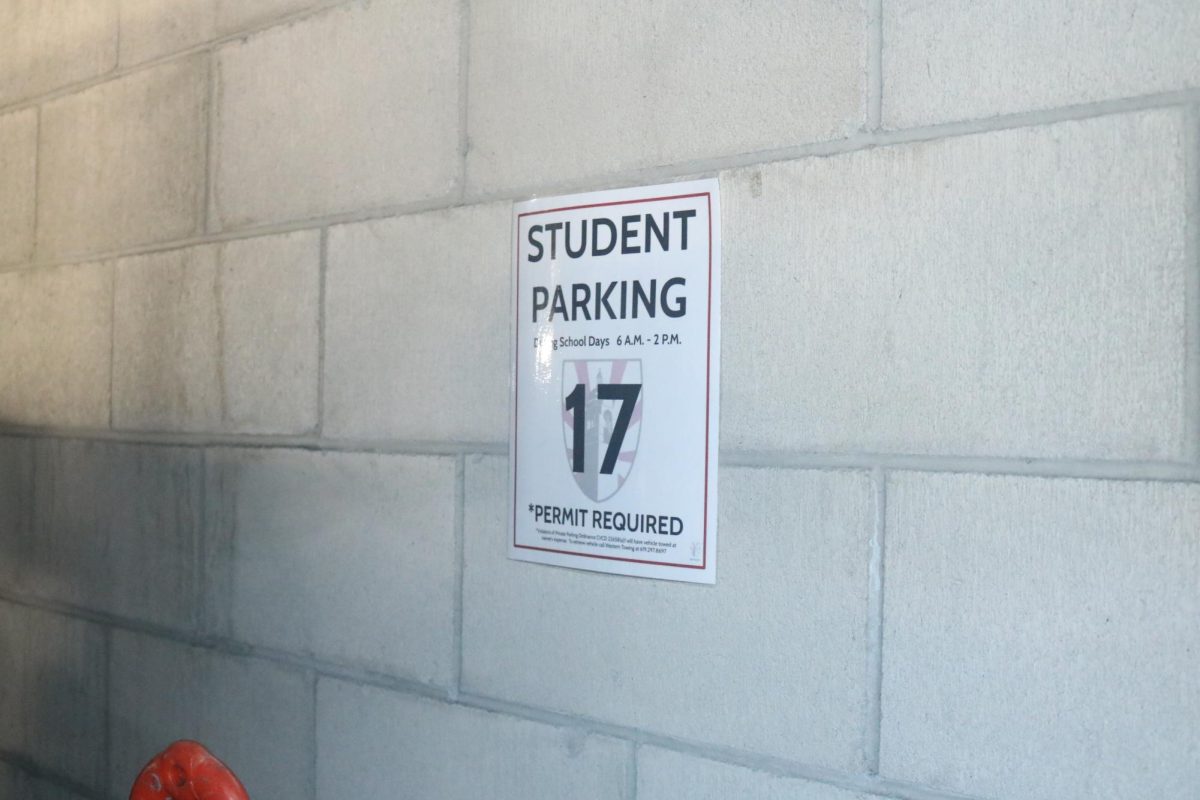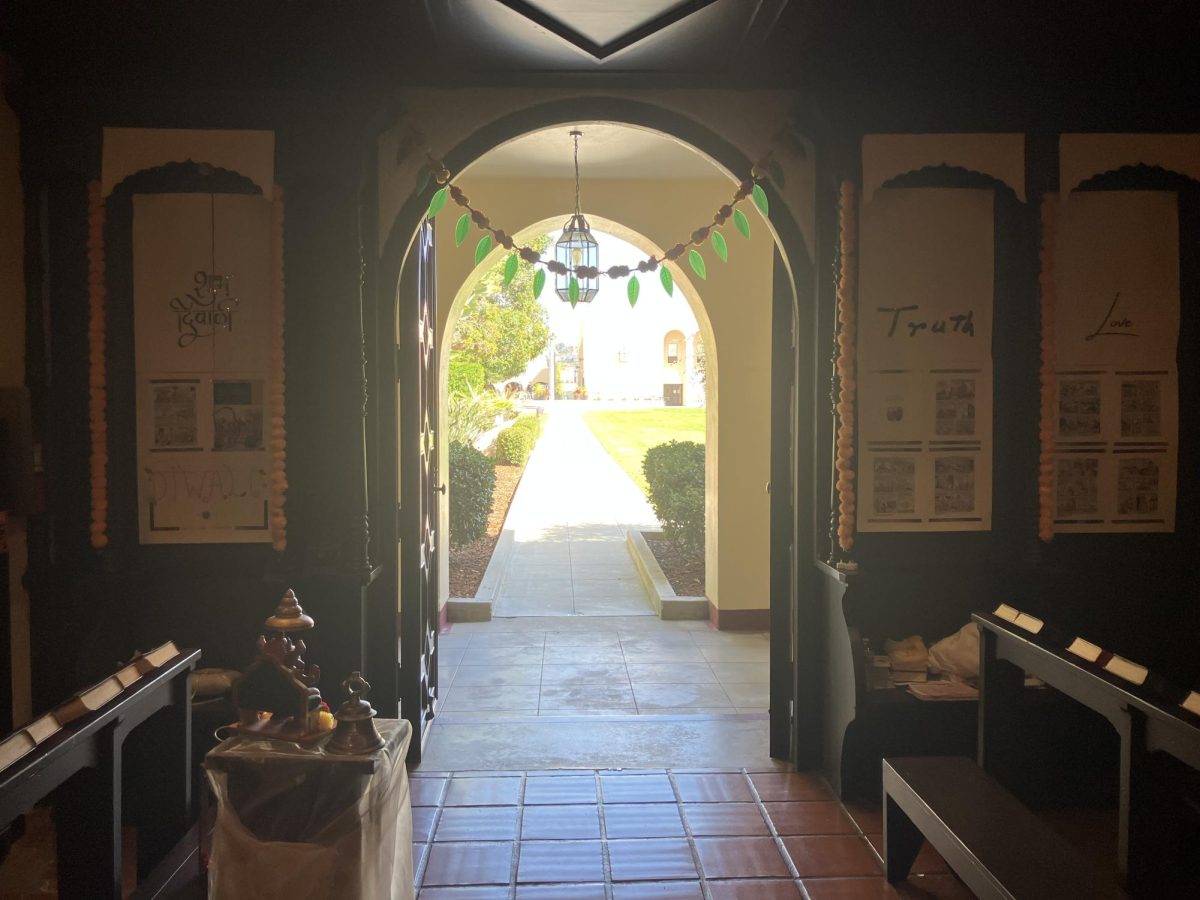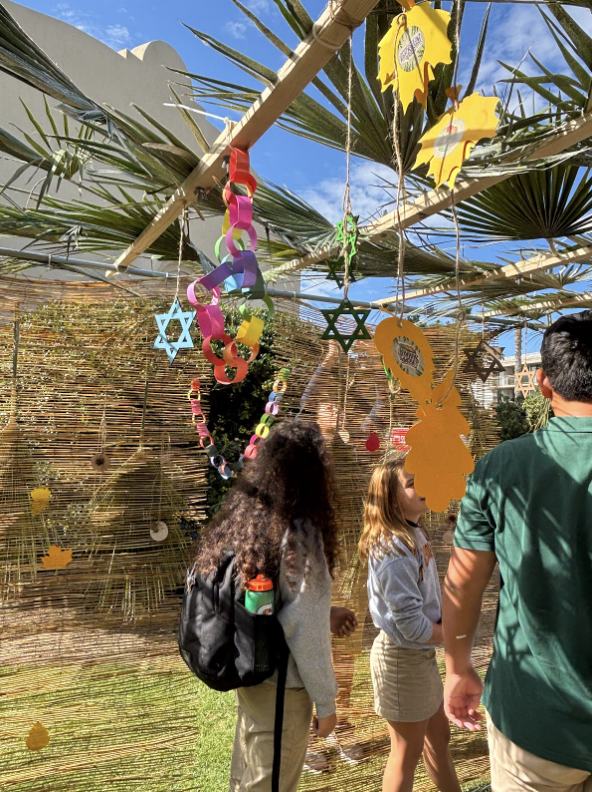One crisp January morning in 2020, English Department Chair Dr. Anna Clark read Shakespeare’s Macbeth to her tenth grade class in a white tent outside the sixth grade area. That memorable day stuck with her.
That day was during a “weird” year, as Dr. Clark said, when the world was under COVID-19 lockdown. Nonetheless, she remembered it was a “beautiful” day. Immersed in a fog bank above the grass in the courtyard, the air “cold, dense, and grey,” it all felt “spooky,” but at least Dr. Clark and her students were spooked together in that uncertain time. It was an experience so particular and special that it “could only [have happened] at The Bishop’s School in San Diego,” recalled Dr. Clark.
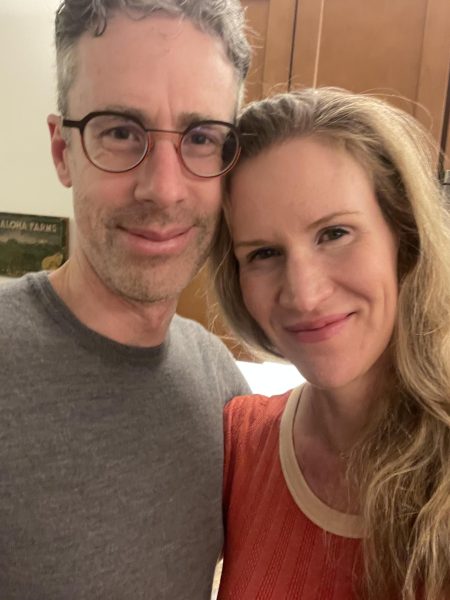
Dr. Clark has accumulated fond memories over her near five years at Bishop’s, alongside her students and colleagues. She found herself right at home soon after moving to San Diego in 2019. Dr. Clark enjoyed picking up her favorite pour-over coffee at Dark Horse Coffee Roasters on Adams Avenue; strolling to the ocean during a free period on a perfect day, where it was just warm enough to go jacket-less; adopting a gigantic 16-pound cat from the Humane Society and naming her Fancy Blanche after a Bobbie Gentry song; hosting her fellow English faculty at her home for team meetings; and hopping over to Herringbone for happy-hour with English Teacher Ms. Amy Allen. As she turns the page to her next chapter in Montreal, Canada with her husband, she will miss this buzzing city and bustling small school with “so much…energy and constant movement,” Dr. Clark said.
Eliana Leff (‘26), a former English II student of hers, remembered how she’d sit in her class with a voracious appetite for Dr. Clark’s words because “every time she spoke, she said something thought-provoking or enlightening.” Her “brilliant way of explaining books, concepts, and themes…not only made everything make sense, but also…deeply meaningful.” Eliana added, with complete certainty that “words don’t fully capture how impactful she was.”
Dr. Clark’s teaching methodology was not the only factor that contributed to such vivid English classes, however — it was also the classroom environment she created. Kayley Xu (‘27), who had Dr. Clark in both eighth grade and in tenth grade, remarked how “relaxed” she felt while “bouncing off ideas” from peers during Harkness discussions, which is an often-daunting activity for some students. In Dr. Clark’s class, the plethora of group activities allowed students “to dig into discussion rather than just focusing on completing the task,” noted Kayley. She also said that Dr. Clark lets students take charge of the narrative, only ever inserting herself during discussions when necessary, in order to “nudge [students] towards fresh and interesting directions.”
Her ability to stir up conversations didn’t just extend to her students. English Teacher Dr. Clara Boyle commented how she “loved to talk to [Dr. Clark] about books from the moment she arrived on campus to interview.” Both Dr. Boyle and Dr. Clark “relish ideas and great writing,” bonding over authors like Edith Wharton. Dr. Boyle appreciated how Dr. Clark added to the powerful “intellectual community aspect that’s already present at Bishop’s.”
For that reason, Ms. Allen, who was Dr. Clark’s mentor during her first year at Bishop’s, loves talking with her about literature, films or TV series, and culture in general, describing Dr. Clark as very “perceptive.” That is, she never ceased to accomplish something gravely difficult for English teachers (to do for other English teachers): give “great book recommendations.” Even for Ms. Allen, who has read her fair share of books, Dr. Clark succeeded in introducing her to some of her most cherished reads: Conversations with Friends by Sally Rooney, Portrait of a Lady by Henry James, and The Human Stain by Philip Roth, just to name a few.
Dr. Clark also invigorated students to engage with extracurricular literature. Kayley noted how Dr. Clark encouraged “students to consume any type of media outside of class, [even if] just for fun.” Whether it be TV shows, articles, books, or movies, Dr. Clark had her myriad of recommendations ready. When Eliana mentioned off-hand her interest in Jane Eyre by Charlotte Brontë, “the very next day, she brought in this version of Jane Eyre that had these amazing cartoon illustrations in it.” With excitement on her face, Eliana said how Dr. Clark talked Eliana through the parts of the book and “although it was a small gesture, it meant so much…because it was one of the first times [Eliana] felt like she really connected with a teacher over a shared love of a book in such a personal way.”
Beyond just talking about books, Eliana recalled how making conversation with Dr. Clark was “always interesting. She’s so engaging and you could always tell she truly valued her students as people.” The universal care Dr. Clark treated every Bishopian with transformed learning experiences. “Dr. Clark’s classroom was one of the first places where I really felt treated like an adult — and that made a huge difference,” Eliana remarked.
Julia Pawl (‘27), a current English II student of Dr. Clark’s, calls her a “great listener.” Sitting around the wooden table in Cummins, when the class got sidetracked, she “probably listened to a lot of conversations that she didn’t want to be listening to,” laughed Julia. “But she always did and help[ed] us refocus. And somehow, even when I didn’t know exactly what I needed help on…she would know what I needed help on,” Julia added.
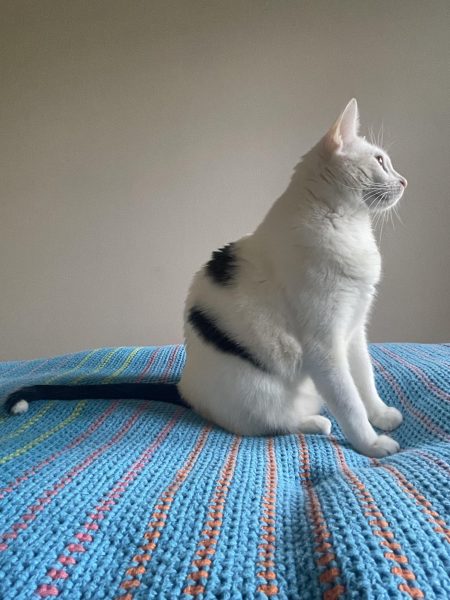
In other words, Dr. Clark is a natural conversationalist. “If I hear a crazy story, she’s one of the first people I want to tell it to,” Dr. Boyle said with a smile. They’re both “students of human nature,” she further elaborated, and it just makes Dr. Clark “really fun to talk to” — fun and equally intellectual. Kayley pointed out Dr. Clark’s diverse lexicon; “I feel like I’m always learning and hearing new words when I’m around her,” she said. Similarly, Julia admires Dr. Clark’s “sense of vocabulary and how she always had a word that matched the mood.” Julia added that “ a lot of the students, including me, oftentimes got confused,” but that made “her ability to use more uncommon words” all the more admirable in her eyes.
Another one of Dr. Clark’s superpowers is knowing how to make others feel at home. Kayley remembers how in eighth grade, for her Shakespeare Folio project, Dr. Clark bought in oreos and drinks for the whole class and made the class feel like a theater. Like that experience, Dr. Boyle fondly recalls the time when Dr. Clark hosted the English II team at her house; the “combination of hospitality and camaraderie [as well as] good work was just wonderful,” noted Dr. Boyle. It’s with that coziness and comfort that has Dr. Boyle always picturing Dr. Clark “leaning into the planning, but also leaning back laughing” in team meetings.
All of this has made Dr. Clark a keystone in the Bishop’s English department. And yet, beyond the classroom, Julia reflected how she learned from Dr. Clark how “to think critically and express myself with more clarity” throughout life. Moreover, she also showed Julia “the importance of empathy [and] how to understand different perspectives [both] in literature and in real life.”
Eliana echoed that, sharing, “Dr. Clark introduced me to the genre that completely changed how I see literature: gothic literature.” It was from reading Frankenstein in Dr. Clark’s English class where a cornerstone moment of Eliana’s English education arose. When Eliana was writing her Frankenstein keyword essay, she was “trying so hard to make this concept [she] had sound unique by using overly complex language.” That was when Dr. Clark told her something Eliana would never forget. “She told me that the sophistication of an idea lies in the idea itself, not the language being used to describe it — and that changed the way I write.”
A great reading partner to fellow colleagues, mentor to students, and listener to all, Dr. Clark was certainly a main character at Bishop’s. As Eliana shared, “Dr. Clark is one of those rare teachers whose love for literature and teaching is so clear and so real. It’s infectious. You can tell she genuinely wants to make a difference in her student’s life — and she succeeds.”



![Smiling ear to ear in “pretty much [their] favorite city,” Dr. Clark and her husband Chris stand in front of a typical but no less breathtaking frame of Amsterdam.](https://thebishopstower.com/wp-content/uploads/2025/05/mamsterdam.jpg)


